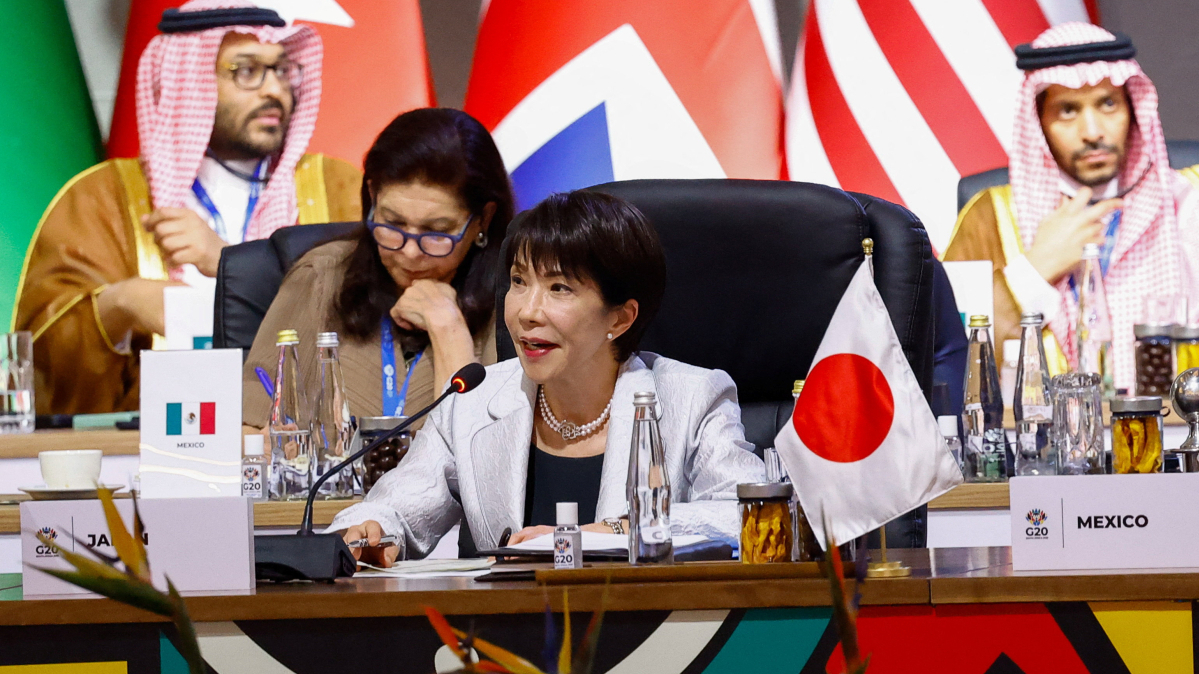Kazakhstan vows to fast-track AZAL crash investigation amid rising diplomatic tensions
Kazakhstan has vowed to speed up its investigation into the Azerbaijan Airlines (AZAL) crash near Aktau, as mounti...

The Japanese government is preparing to host a landmark summit with the leaders of the Central Asian states, expected to take place in Tokyo in December 2025.
Japan’s interaction with the region which was under the Central Asia – Japan dialogue, had operated exclusively at the ministerial level but will now include heads of state, although exact dates have not yet been announced.
For more than 20 years, the format has remained an important but specialised diplomatic channel. Today, however, Tokyo seeks to elevate the partnership to a strategic tier.
Japanese media say that the Central Asian countries maintain close ties with Russia and have in recent years intensified cooperation with China.
Against this backdrop, Japan is aiming to strengthen its own presence in a region rich in natural resources and increasingly significant for global economic connectivity.
Prime Minister Sanae Takaichi sees the upcoming summit as an opportunity to broaden cooperation and reinforce Japan’s economic security, according to domestic reports.
The initiative had been expected to culminate earlier: a high-level meeting planned for August 2024 in Kazakhstan, marking the 20-year anniversary of the “Central Asia–Japan” dialogue, was cancelled after warnings of a potentially powerful earthquake prompted the Japanese delegation to withdraw.
Analysts note that the format had long required renewed momentum. Divergent foreign-policy priorities among regional leaders, combined with Japan’s prolonged economic stagnation, limited the possibilities for an assertive investment strategy abroad. Yet the international landscape has changed markedly in recent years.
Following the outbreak of the Russia–Ukraine war in February 2022 and the broader geopolitical crisis that ensued, both Japan and the Central Asian states recognised the need to deepen cooperation.
Numerous Japanese companies began withdrawing from the Russian market and redirecting their focus towards Central Asia, creating a new economic dynamic and prompting a reassessment of the region’s strategic importance.
At the same time, the Central Asian countries themselves started presenting a more unified approach to external partners, seeking to enhance their political and economic resilience.
During the Tokyo summit, Japan is expected to offer joint initiatives on economic decarbonisation and to mobilise private investment for financing green projects.
Such proposals align with Tokyo’s long-term strategic objectives while also addressing the region’s growing demand for sustainable development.
If successfully implemented, the forthcoming “Central Asia–Japan” summit may become a pivotal moment that injects fresh momentum into regional cooperation and opens the door to deeper economic and political engagement.
The Kremlin is utilising the recent United States and Israeli military strikes on Iran to validate its ongoing war in Ukraine. Russian officials are pointing to the escalation in the Middle East as evidence that Western nations do not adhere to international rules.
Saudi Arabia’s state oil giant Saudi Aramco closed its Ras Tanura refinery on Monday following an Iranian drone strike, an industry source told Reuters as Tehran retaliated across the Gulf after a U.S.-Israeli attack on Iranian targets over the weekend.
The Middle East crisis intensifies after the deadly attack on the compound of the Supreme Leader of Iran Ali Khamenei on Saturday that killed him, other family members and senior figures. Iran has launched retaliatory strikes on U.S. targets in the region.
U.S. President Donald Trump said the U.S. military has enough stockpiled weapons to fight wars "forever"; in a social media post late on Monday. The remarks came hours before conflict in Iran and the Middle East entered its fourth day.
Türkiye raised its security level for Turkish-flagged vessels in the Strait of Hormuz to Level 3 on Sunday (2 March). The development follows Iranian restrictions on shipping after U.S. and Israeli strikes and confirmation of Supreme Leader Ali Khamenei’s death.
Seven opposition parties in Georgia have formed a coordinated alliance ahead of upcoming elections, saying it aims to challenge the dominance of the ruling Georgian Dream party. The government has dismissed the move as a rebranding of familiar political figures.
Türkiye’s President, Recep Tayyip Erdoğan, has described the ongoing U.S.–Israeli military campaign against Iran as a “clear violation of international law”, in his strongest remarks yet on the escalating regional crisis.
U.S. President Donald Trump said the U.S. military has enough stockpiled weapons to fight wars "forever"; in a social media post late on Monday. The remarks came hours before conflict in Iran and the Middle East entered its fourth day.
Kazakhstan has vowed to speed up its investigation into the Azerbaijan Airlines (AZAL) crash near Aktau, as mounting diplomatic pressure and geopolitical tensions push the disaster further into the international spotlight.
Entrances to Iran's underground and previously bombed uranium-enrichment plant at Natanz have been struck as part of the U.S.-Israeli military attacks on the country, the United Nations nuclear watchdog, the International Atomic Energy Agency (IAEZ) confirmed on Tuesday (3 March).
You can download the AnewZ application from Play Store and the App Store.

What is your opinion on this topic?
Leave the first comment